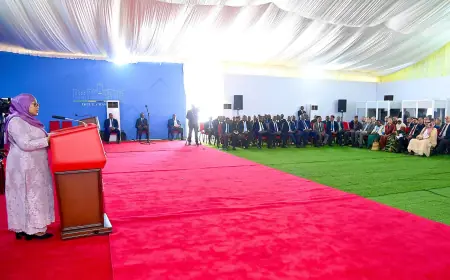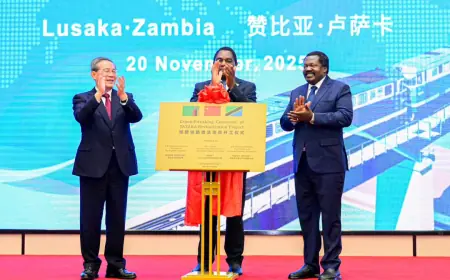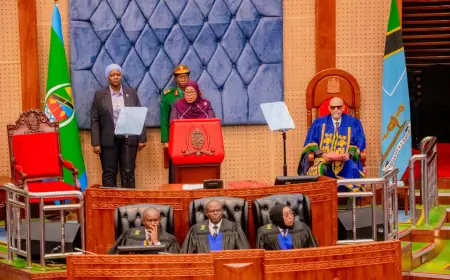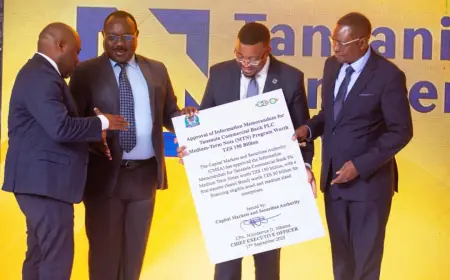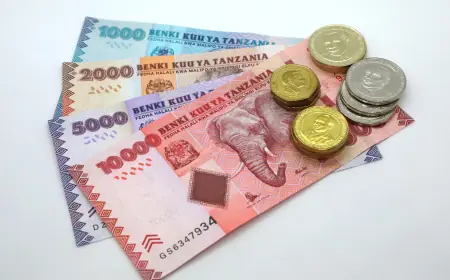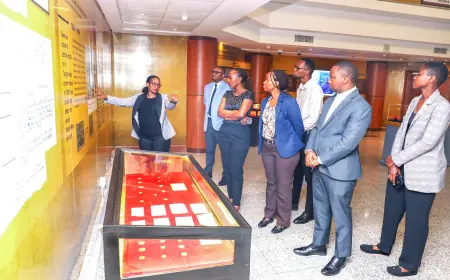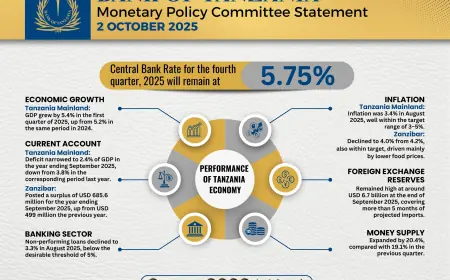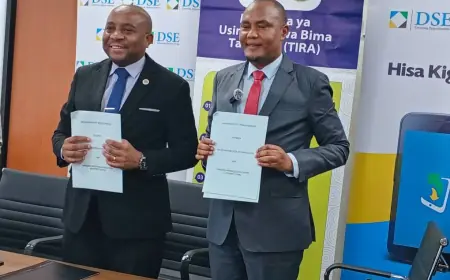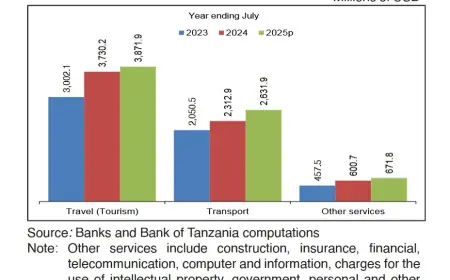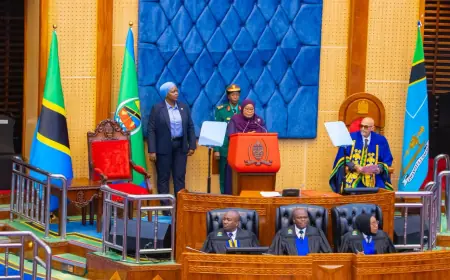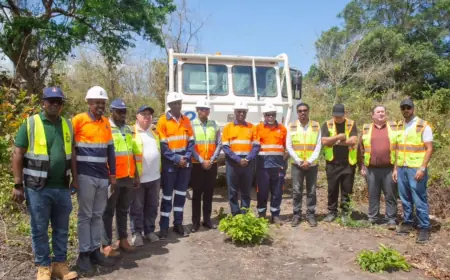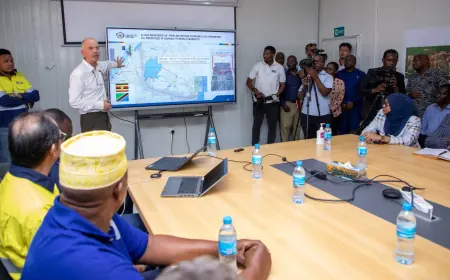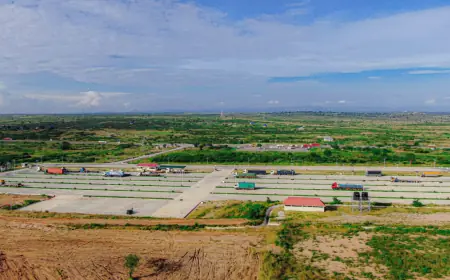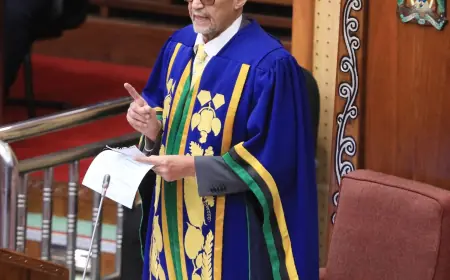Tanzania launches survey on companies with foreign liabilities
The survey is being jointly conducted by the Bank of Tanzania (BoT), the National Bureau of Statistics (NBS), and the Tanzania Investment and Special Economic Zones Authority (TISEZA)
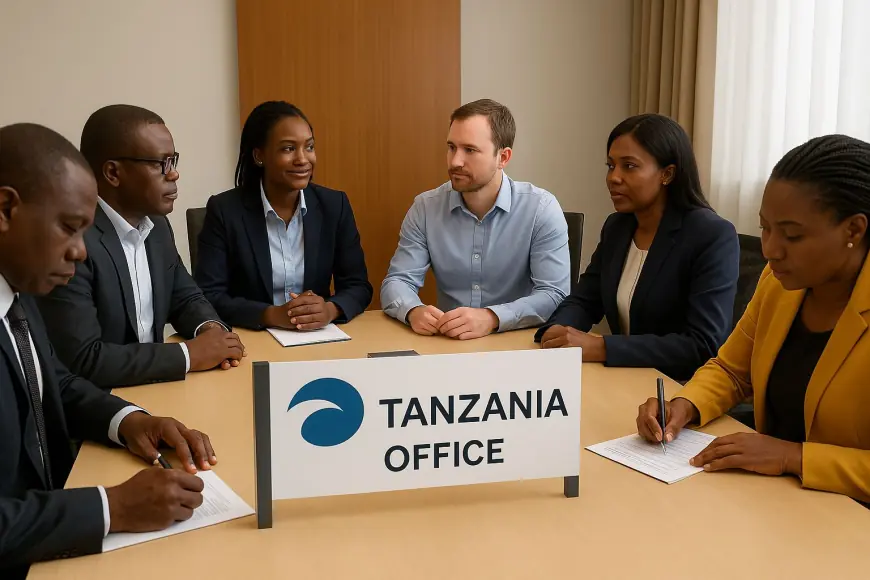
Dar es Salaam. The government has launched a nationwide survey targeting companies with foreign liabilities operating in Tanzania, in a move aimed at assessing the impact of foreign private investments on the domestic economy.
The survey is being jointly conducted by the Bank of Tanzania (BoT), the National Bureau of Statistics (NBS), and the Tanzania Investment and Special Economic Zones Authority (TISEZA).
It will run from July to September 2025, covering financial data for the year 2024.
According to a statement issued by the BoT on July 24, 2025 the exercise seeks to update the country’s Balance of Payments (BoP) and International Investment Position (IIP), while also informing policy formulation processes at the national level.
“The data collected will provide crucial insight into the magnitude and structure of foreign private investments and their influence on various sectors of the economy,” reads part of the statement.
The survey will gather detailed information on both equity and non-equity components of foreign liabilities.
It targets selected companies registered and operating in Tanzania, particularly those that have received foreign capital or financial commitments from non-resident entities.
Authorities have called on the selected companies to cooperate fully with survey officials during field visits, accurately complete the questionnaires, and submit audited financial statements for 2024.
If audited accounts are not yet available, companies may submit provisional statements or reliable estimates.
The institutions involved have also urged companies to return the completed questionnaires within one week of receipt to facilitate timely data processing.
The statement reminded companies that participation in the exercise is not optional, citing the legal provisions under which the survey is being conducted.
These include Section 32(b) of the Tanzania Investment and Special Economic Zone Act (Cap. 38), Section 34 of the Statistics Act (Cap. 351), and Section 57 of the Bank of Tanzania Act (Cap. 197).
“Failure to comply with this request may constitute a violation of the relevant laws,” the statement warned.
All information collected will be used strictly for statistical purposes and will be published in aggregate form.
Authorities have assured stakeholders that confidentiality will be maintained at all levels of the process.
This year’s survey comes at a time when Tanzania is positioning itself as a competitive investment destination in the region, following key reforms in investment regulation and the streamlining of the special economic zones framework.
The country’s foreign direct investment (FDI) inflows have shown a steady upward trend in recent years, driven by increased investor interest in sectors such as manufacturing, mining, energy, transport, and telecommunications.
In a recent investment report published by the NBS and the now-defunct Tanzania Investment Centre, Tanzania recorded FDI inflows worth over $1 billion in 2023, with China, the United Kingdom, and the United Arab Emirates emerging among the top sources of investment.
The data from the ongoing survey is expected to offer a more granular understanding of the structure of foreign liabilities, ranging from direct equity ownership to external loans, inter-company debt, and other financial commitments.
It will also help the government track trends in foreign capital participation and assess the sustainability of such inflows in the context of macroeconomic planning.
This is not the first time such a survey is being carried out.
Previous rounds of the exercise have helped strengthen Tanzania’s external sector statistics, enabled better investment policy design, and supported compliance with international data reporting standards.
The results of the survey will feed into the country’s national accounts and international statistical submissions, including those to institutions such as the International Monetary Fund (IMF) and the United Nations Conference on Trade and Development (UNCTAD).
Stakeholders have welcomed the move, saying regular and accurate data collection is vital for understanding the evolving investment landscape and ensuring informed policymaking.
What's Your Reaction?
 Like
0
Like
0
 Dislike
0
Dislike
0
 Love
0
Love
0
 Funny
0
Funny
0
 Angry
0
Angry
0
 Sad
0
Sad
0
 Wow
0
Wow
0







